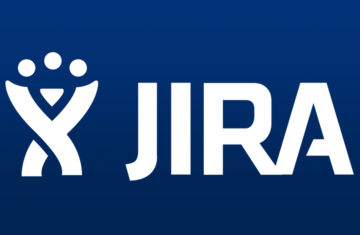Also referred to as “total quality management,” it is the control of all activities and tasks that must be accomplished in order to maintain a specified level of quality and excellence. This includes defining the quality policy, developing, ensuring, and implementing quality plans, and performing quality control and improvement. Total quality management generally focuses on achieving long-term goals by implementing short-term goals and actions. It also aims to ensure that all individuals in the company work towards improving its operations, products, services, and culture to achieve the long-term success that stems from customer satisfaction.
The main components of total quality management
- Quality Planning: It is the process of defining quality standards related to the project and determining how to meet them.
- Quality Improvement: Meaningful changes were made to processes in order to improve the reliability of the outcome.
- Quality Control: It is the continuous efforts to maintain the integrity and reliability of operations in achieving the desired results.
- Quality Assurance: It is the systematic or planned actions, which aim to provide sufficient reliability to ensure that the product or service meets the specified requirements.
Principles of total quality management
- Customer Focus: The primary focus of any organization should be meeting the needs and expectations of its customers. When the organization understands the current and future needs of its customers and works to meet them, it will be able to achieve the desired levels of customer loyalty, and thus its profits will increase. When an organization’s operations are more efficient, the quality is higher, and it can meet the needs of more customers.
- Leadership: Good leadership in an organization leads to its success. Great leadership fosters unity and purpose among its employees and shareholders. Creating a culture that supports development and prosperity provides an internal environment that allows employees to use their full potential, give their best effort, and participate fully in achieving the company’s goals. Leaders must allow employees to participate in setting clear goals for the company. This motivates employees and improves their productivity and loyalty.
- Employee participation: is a core principle of total quality management, as management involves its employees in creating and achieving value, whatever the nature of their jobs. The organization should encourage its employees to improve their skills and maintain consistency and compatibility among them. This principle also includes strengthening employees, empowering them, involving them in the decision-making process, and appreciating their achievements.
- Process approach: It is one of the critical principles of total quality management. It stresses the efficiency and effectiveness of the organization’s operations. The principle of the approach is to recognize that good processes lead to improved consistency, faster activities, lower costs, less waste, and continuous improvement. An organization is improved when leaders can manage and control the company’s inputs and outputs and the processes involved in producing the outputs.
- Continuous Improvement: Every organization must set a goal to remain actively involved in the continuous improvement process. A company that continues to improve itself will experience improved performance, organizational flexibility, and an increased ability to embrace new opportunities. Companies must be able to constantly create new processes and adapt to new market conditions.
- Evidence-based and information-based decision-making process: Companies must adopt a fact-based approach in the decision-making process, as they make their decisions based on verified and analyzed data that leads to a developed understanding of the market, so that the company can perform the tasks that generate the desired results. This approach is vital in helping to understand causation in many cases and to explain possible unintended consequences.
- Relationship Management: It relates to establishing relationships that benefit the company, its suppliers, and its retailers. Stakeholders can affect the performance of the company; therefore, the company must manage the supply chain operations well and strengthen its relationship with its suppliers in order to achieve the best impact on its performance, and then it can achieve sustainable cooperation and success.
Benefits of total quality management
- It helps the organization achieve greater consistency in its missions and activities that go into producing its products and services.
- Increases efficiency in operations, reduces waste, and optimizes the use of time and other resources.
- Help improve customer satisfaction.
- Enables the company to efficiently market its business and seize opportunities in new markets.
- It makes it easier for the company to integrate new employees and helps them manage growth with ease.
- It enables the company to continue to improve its products, processes, and systems.
The total quality management process includes a set of directive guidelines developed by a specialized team in order to ensure that the products and services provided by the company meet the appropriate standards or fit a specific purpose.

Stages of total quality management
The total quality management process consists of the following stages:
- Start setting quality goals in agreement with the client.
- Determine how to measure goals. and take the necessary measures to measure quality and identify quality problems that appear and require improvements.
- Submit comprehensive reports on the overall level of quality achieved.
Read also: What are the stages of project management?



